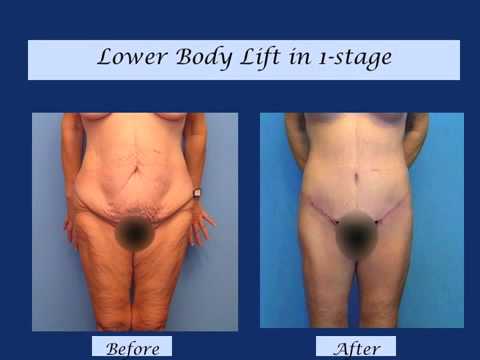Your Cheat Meals Might Be Causing Your Weight Gain
Most of the time, you’re eating perfectly good. Your diet is raw, organic, rainbow coloured healthiness. You are doing the right thing and it feels wonderful. But then you come across your favourite sugary or fatty indulgence and you scarf it down, not giving it a second thought. You are caught in a cycle of wanting to eat properly, while not denying yourself a treat now and then.
These extreme swings are part of a larger pattern. “Today’s consumers don’t stick to rigid eating plans,” explains Kelly Weikel, the director of consumer insights at Technomic, a research and consulting firm that collects data about food and eating trends. The company’s data reveals that 86% of people don’t follow a specific diet plan and alternate between clean, healthy eating and more indulgent, hedonistic practices. What they found specifically, was that our behaviour changed depending on where we were. “What we eat depends on the occasion, the scenario, and the day of the week,” Weikel says.
THE EATING EXPERIENCE
“We are more sophisticated consumers, so we are always interested in the latest new foods,” says Susan B. Roberts, Ph.D., a professor of nutrition at Tufts University. A variety of interesting food options are everywhere. Turn on the television at any given moment and you can see delicious dishes being prepared right before your eyes. Making these foods, learning about these foods and eating these foods is something we want to be a part of. Even if you manage to stay away from restaurants and the television, the amount of food porn that floods our social media pages isn’t helping. “We see pictures of super healthy meals and super decadent meals and nothing in between. It leads you to believe that this is how people eat all the time, so it becomes normal,” says nutritionist Dawn Jackson Blatner, R.D.N.
What might shock you is that eating indulgent foods might be good for us! Researchers from the Cornell University Food and Brand Lab wanted to see how ‘foodie culture’ has impacted our weight and health. They surveyed 500 women and found that those who ate more adventurously were healthier eaters, had lower BMIs, and were more physically active than those who were less willing to try unfamiliar dishes. “The findings were exactly the opposite of what everyone expected,” says Brian Wansink, Ph.D., the director of the lab and the author of Slim by Design. People who are open to trying new things are more likely to get satisfaction from the flavours and textures of the food. They don’t require nearly as much of it to be satisfied with the experience.
DIGGING TOO DEEP
Of course, there is the other side of being an experimental eater. Some women find it difficult to stop eating rich foods once they begin. “Some people do fine, swinging from indulging a little to getting back to cleaner eating without a problem,” Roberts says. “For others, it gets them offtrack, and if they want to stay at a healthy weight, they need to stick to healthy foods with very few exceptions.”
Balance between healthy and indulgent eating is the key but it isn’t always so easy to find. “In many ways, the hardest thing in the world is moderation,” says David Katz, M.D., the founding director of the Yale-Griffin Prevention Research Center at Yale University and the president of the American College of Lifestyle Medicine. “You’re going to eat some of the tempting foods, but you need the mental strength to be able to say when you’ve had enough. For many people, it’s easier to refrain from temptations completely than to eat them and try to call it quits before it gets out of hand.”
So how can you eat healthy without denying yourself the odd indulgent treat? Try following these simple rules:
Add hits of adventure to your diet: If you are concerned about going overboard on foods that are too tasty to stop eating, try adding a few bites to your ordinary meals. For example, if cheese is your Waterloo, try adding a few chunky morsels to your salads. Or add a little spicy sausage to wake up those taste buds. “Every other week, try to have a food you haven’t eaten before,” he adds. “Doing this will make you a little more mindful of the process of eating.”
Lose the good-versus-bad mentality: Food cannot be good or bad. If you really want something, have it. If you deny yourself you will likely get frustrated and upset, which will lead you to overdoing it on something else. Have some and savour every bite. Chew slowly to taste the food, focus on the texture. “Welcome the pleasure of that food into your body,” says Kayleigh Pleas, a wellness coach in New York City. “Don’t be afraid to enjoy it.”
Tell yourself you can always have more: When enjoying an indulgent food, take only a small amount. The food will not disappear. You can have more tomorrow if you’d like. Talk yourself out of that ‘now or never’ feeling that can lead to a piled high plate and a full, bloated belly.
How do you manage to strike a balance between healthy eating and indulgent eating? If you’d like to keep your diet on the rails but don’t want to sacrifice in the taste department, check out the BodyRock Meal Plan. Not just a 30 day menu planner, this plan comes with a detailed nutrition guide and an added recipe book with over 70, delicious offerings! The meals are so tasty, you’ll never miss your junk food!
Source: Shape
-
What’s Your Diet Personality?
(BlackDoctor.org) — Everybody else is in bed, but
-
Adding Weights Can Help You Lose Weight
A recent article touting the wonderful effects of adding strength trai
-
Exercises That Work For Weight Loss
Exercises that work for fat burning, particularly those that don’
-
Weight Loss Programs A Real Paradigm Shift
It is an era of smartness and rationality and people should leave no
-
The Diet plan Answer: Living Up to Its Name as the Solution to Your Weight Issues
Do you feel like you have tried every weight reduction program ther
-
Flatter Abs: The Six-Pack Theory
Youre watching television, and suddenly
- DON'T MISS
- Weight Loss Tip Dont Eat With Your Emotions
- Discover What Drives Your Eating Decisions
- The bladder problem you didn’t know you had
- Advice for Your Weight Loss Goals
- Easy To Follow Facts On Getting Rid Of Your Love Handles
- Weight Loss For Women Over 50 - Fighting Time
- Top 10 Gym Mistakes
- So You Want to Predict How Successful Your Weight Loss Quest Is?
- Top Weight Loss Tricks - Burn Belly Fat Fast
- After weight loss, new approach needed for maintenance




